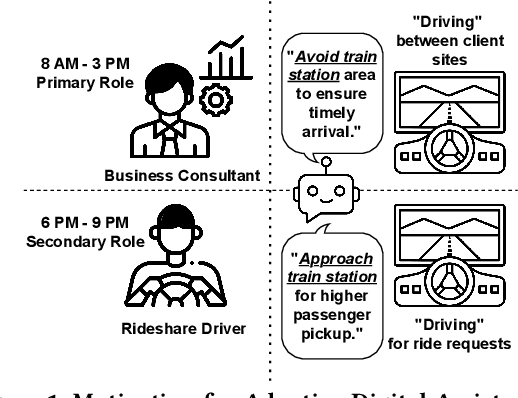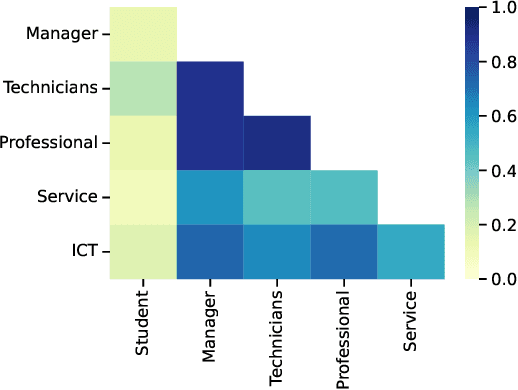WorkR: Occupation Inference for Intelligent Task Assistance
Paper and Code
Jul 26, 2024



Occupation information can be utilized by digital assistants to provide occupation-specific personalized task support, including interruption management, task planning, and recommendations. Prior research in the digital workplace assistant domain requires users to input their occupation information for effective support. However, as many individuals switch between multiple occupations daily, current solutions falter without continuous user input. To address this, this study introduces WorkR, a framework that leverages passive sensing to capture pervasive signals from various task activities, addressing three challenges: the lack of a passive sensing architecture, personalization of occupation characteristics, and discovering latent relationships among occupation variables. We argue that signals from application usage, movements, social interactions, and the environment can inform a user's occupation. WorkR uses a Variational Autoencoder (VAE) to derive latent features for training models to infer occupations. Our experiments with an anonymized, context-rich activity and task log dataset demonstrate that our models can accurately infer occupations with more than 91% accuracy across six ISO occupation categories.
 Add to Chrome
Add to Chrome Add to Firefox
Add to Firefox Add to Edge
Add to Edge